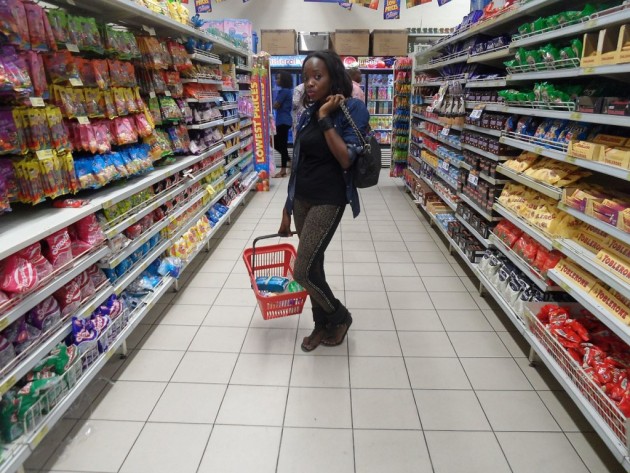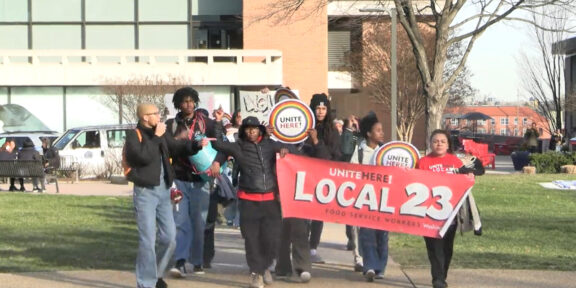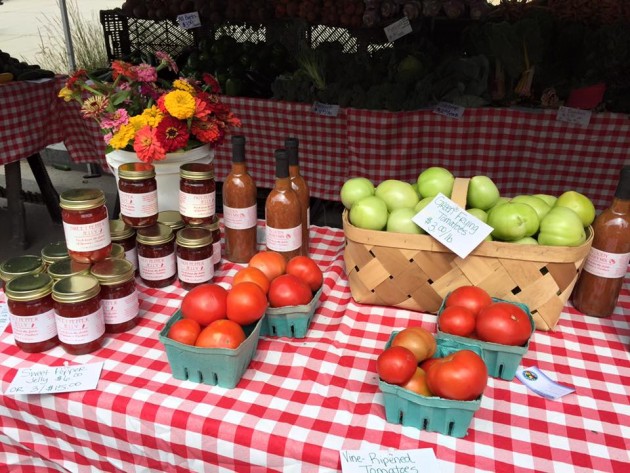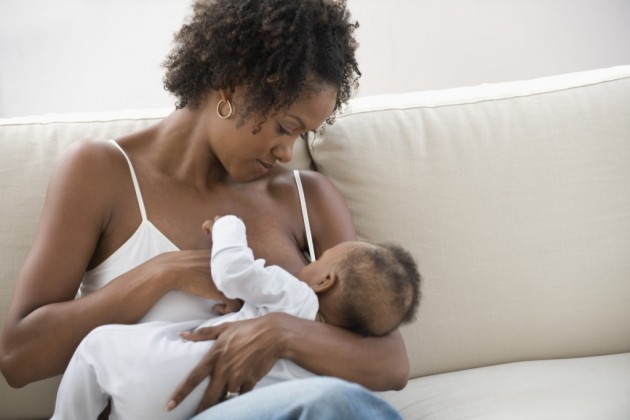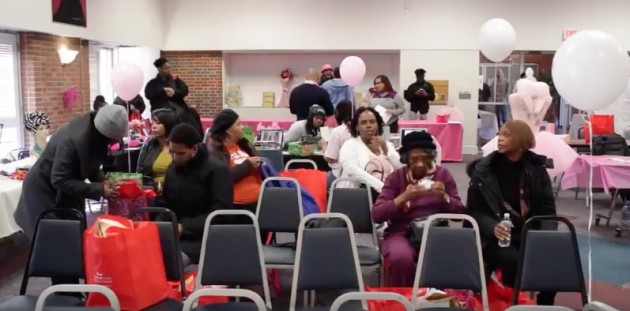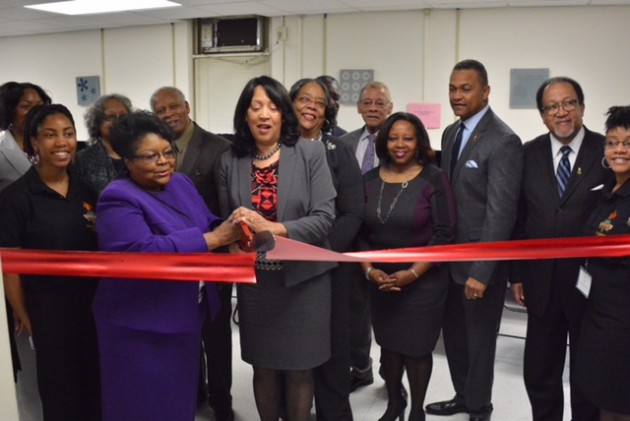
ScholarCHIPs reciepetents and fouder Yasmine Arrington. Photo courtesy of ScholarCHIPS
WASHINGTON — Yasmine Arrington grew up like most of the other children in her neighborhood, but one part of her life that she kept mostly locked away, one that she says caused her lots of pain, embarrassment and financial struggles.
For most of her life, her father was locked away in a Georgia prison while she lived in Washington. And later, because he was in prison, she and her brothers ended up being raised by their grandmother instead of their mother or father.
Arrington is a part of a growing demographic, children whose parents are behind bars. Approximately 2.7 million children in the United States have a parent who is incarcerated, according to experts.
Local residents, City Councilmember LaRuby May, community organizations and others gathered recently in southeast Washington to discuss the phenomenon at a forum sponsored by the Strengthening Families and Communities Coalition. The event, titled “Improving the Lives of Children of Incarcerated Parents,” was held Wednesday at the R.I.S.E. Demonstration Center.
Perry J. Moon, executive director of the Far Southeast Family Strengthening Collaborative, said the subject is important, particularly to residents of southeast D.C.
“We see firsthand the impact that incarceration of parents causes young people: the trauma, the impact on their education and violence in the community,” Moon said.
Panelist Cedric Hendricks, acting deputy director of the Court Services and Offender Supervision Agency (CSOSA), explained how it can often be difficult for incarcerated parents to stay in touch with their children.
“The fact that they’re as far away as California or West Virginia or Florida or Michigan makes it difficult for the families to stay in touch with their loved ones,” Hendricks said.
“If you’re in Victorville in California, you’re not getting any visits. If you’re in Michigan, that’s a 10-hour drive. So, that has some impact on the ability of incarcerated persons to stay in touch with their children.”
This is something to which Arrington, also a panelist, said she can attest.
“I missed a lot of time growing up,” she said. “I missed having that father-daughter relationship. “When schools would have father daughter dances and girl scouts would have father daughter events I didn’t have my father there to participate.”
“Fortunately, I still had a lot of other people — mentors and family and church family– that would speak positive to me: ‘You’re intelligent, beautiful. You’re going to make it and go far.’ So, I have a pretty good positive self-esteem.”
Arrington said her father is currently out of prison and has been able to obtain construction work through a federal agency. She said the two have been able to establish a positive relationship.
Hendricks explained how in a Hazelton penitentiary survey of 66 women, it was shown that usually when a parent is incarcerated, the child can end up in foster care, living independently or more often with relatives, usually the maternal grandmother.
Arrington, 22, a fellow at the Washington public relations firm Hager Sharp and a master of divinity student at Howard University, said that was part of her experience as well.
Life had already been tough financially for the family and their mother, who worked for the military for a short time before taking a job at the National Institute of Health before her death. Her mother died when Arrington was 13, she and her two younger brothers moved in with their grandmother.
“It was a big financial strain, because it was just my mom and grandma,” she told the 60-plus people gathered at the six-hour event. “I watched them struggle, working long hours and trying to take care of me and my two younger brothers.”
Arrington said when she began applying for college, her grandmother pointed out that there were no scholarships for children of inmates. So, she decided to take action.
She created ScholarCHIPS in 2010.
ScholarCHIPS is a non-profit organization that awards scholarships and book awards to children with incarcerated parents. Since its beginning, the organization has awarded 23 scholarships. The program was honored by on BET’s “Black Girls Rock” in 2012 with the Making A Difference Award.
CSOSA has also taken action. It partners with Hope House, which works with children of incarcerated parents, to use video conferencing to allow parents and children to see and speak with each other on a more regular basis.
May told the audience that she introduced a bill to the District’s City Council in July that she said will help those children as well.
The bill requires the mayor to identify children of incarcerated parents in the District and do a full assessment on them. “
“Once we find out what their profile is, then we look internally in the District and across the country for the best practices on how it is we serve the children that we identified,” May said.
Arrington said the biggest need for the children is mentorship.
“They need mentors in their lives, and they need people who believe in them and who don’t stigmatize them and don’t say, ‘You’re going to be just like your parents,’ or who even subconsciously treat them differently, “ she said. “They need what every other student needs: financial support, love and affection.”


